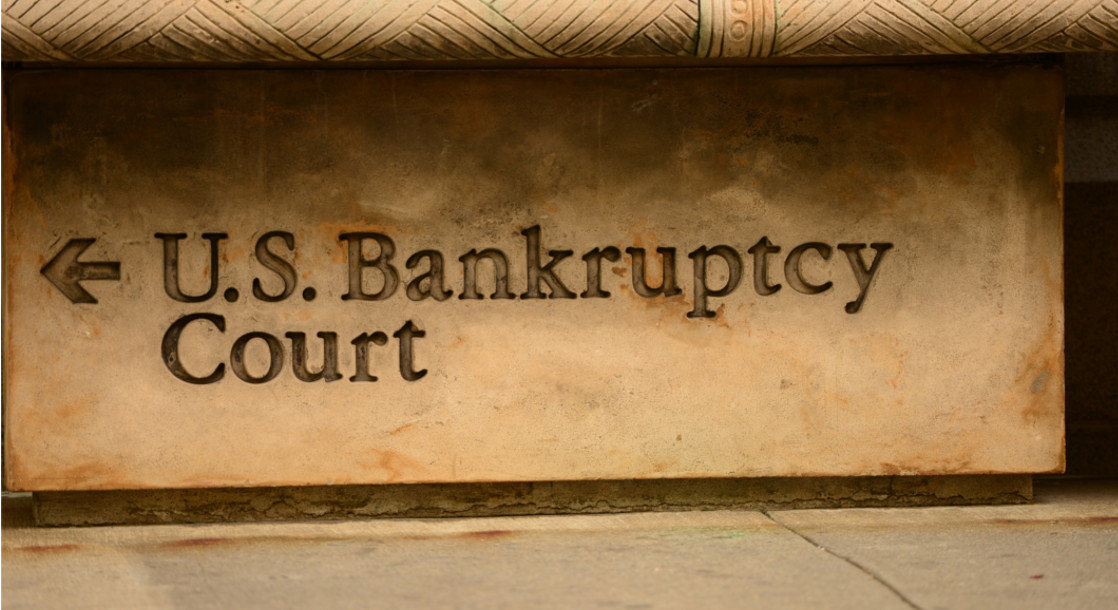Photo via Reptile8488
One of the most difficult challenges that U.S. canna-businesses currently face is that the federal tax code that prevents them from claiming credits and deductions on their professional income, even if legal on a state level — leaving cannabis companies with federal tax rates as high as 80 percent. If the lack of regulatory equality with other legal businesses drives one of these canna-startups to bankruptcy, they will face yet another hurdle, as they cannot access the same bankruptcy protections that any other profit-making enterprises can avail themselves of, writes Forbes.
Two Department of Justice officials recently penned an article in the American Bankruptcy Institute Journal to serve as an unfriendly reminder to the cannabis industry that the country's bankruptcy system cannot assist canna-businesses in liquidating or restructuring their assets. "Marijuana continues to be regulated by Congress as a dangerous drug, and as the Supreme Court has recognized, the federal prohibition of marijuana takes precedence over state laws to the contrary," wrote Clifford J. White III, director of the Executive Office for U.S. Trustees (USTP) and John Sheahan, a trial attorney for the agency, Forbes reports. This is consistent with an analysis published in the New York Law Journal earlier this year, which concluded that state-legal marijuana enterprises effectively can’t file bankruptcy.
White and Sheehan explain that federal law prevents the bankruptcy system from being “used as an instrument in the ongoing commission of a crime and reorganization plans that permit or require continued illegal activity.” The authors also note that “bankruptcy trustees and other estate fiduciaries should not be required to administer assets if doing so would cause them to violate federal criminal law." The USTP officials wrote that "there is no distinction between the seller or the grower of marijuana and the supposedly more 'downstream' participants… [A]ll are in violation of federal criminal law."
Because of this, not only are cannabis sellers and growers guilty of breaking federal law, bankruptcy trustees charged with selling off otherwise-legal fertilizer, growing equipment, or farm land used for cannabis cultivation would be just as guilty. The article states that anyone “who collected rent from a marijuana business tenant, or who sought to collect the profits of a marijuana investment” would be in violation of federal law. The Internal Revenue Service (IRS) has employed this same logic to deny standard business tax deductions to any marijuana business. The Tax Equity and Fiscal Responsibility Act of 1982 established Code Section 280E, which stipulates that “no deduction or credit shall be allowed for any business involved in “trafficking in controlled substances.”
The IRS is deadly serious about preventing canna-businesses from claiming these deductions, with actions including gaining access to Colorado's seed-to-sale cannabis tracking system in order to ensure that no Centennial State canna-companies are trying to pay less than what the federal tax agency believes they owe. Earlier this year, Colorado-based cannabis firm The Green Solution LLC sued the IRS, arguing that these restrictions would make their business unprofitable. The suit has not yet been successful, but a bipartisan group of legislators have proposed The Small Business Tax Equity Act, which would reform the 280E code, giving canna-businesses an equal opportunity to succeed financially and to avoid having to declare bankruptcy down the line. If it passes, this bill could pave the way for the relaxing of other financial restrictions on canna-businesses, such as lack of access to banks and the winder financial industry.











